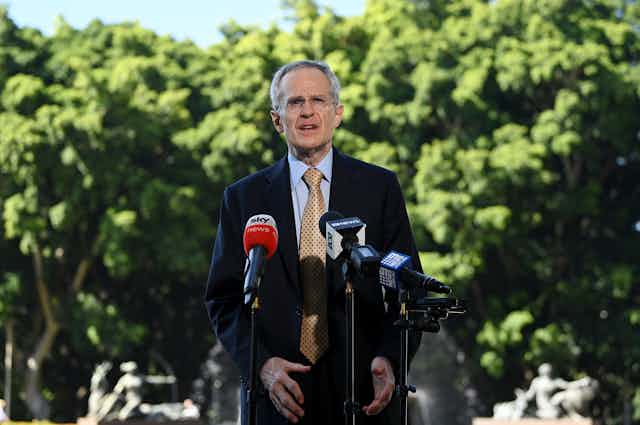The government has flirted with, and now ruled out, changing the Stage 3 tax cut in the October 25 budget, which appears set to be dominated by some deep spending cuts. In the longer term, however, debate will continue over the need to reform Australia’s tax system, as the calls on revenue to finance big programs increase.
Meanwhile, the government is locked in a battle to get high domestic gas prices down, with its light touch policy towards the gas producers not having much impact.
In this podcast, Michelle Grattan talks with Rod Sims, former chair of the Australian Competition and Consumer Commission (ACCC), and now a professor at the Australian National University’s Crawford School for Public Policy, on tax, gas and privatisation.
Sims says tax reform should look beyond income tax. “We have plenty of other ways to raise taxation […] we should be altering the existing petroleum resource rent tax because I think it’s flawed and we can get more money out of that pretty well straight away”. This change could raise “billions per year”.
Advocating a more robust taxing of resources, Sims says: “You’ve got high mineral prices, high gas prices all around the world. That’s causing harm in Australia as well as elsewhere. Yet we’re not getting enough tax from them. I think that’s a really unhealthy situation to be in.”
Sims also criticises the way privatising state assets has been done, and urges changes for the future to ensure competition.
“We should stop privatising assets in ways that see monopolies in private hands without any regulation and often with arrangements to stop them facing competition. I think we’ve got to have tests for making sure we do these things in a competitive way with proper regulation […] if you have three bread shops that you can buy bread from, you get a much better deal than if the only choice you have is one bread shop.”

